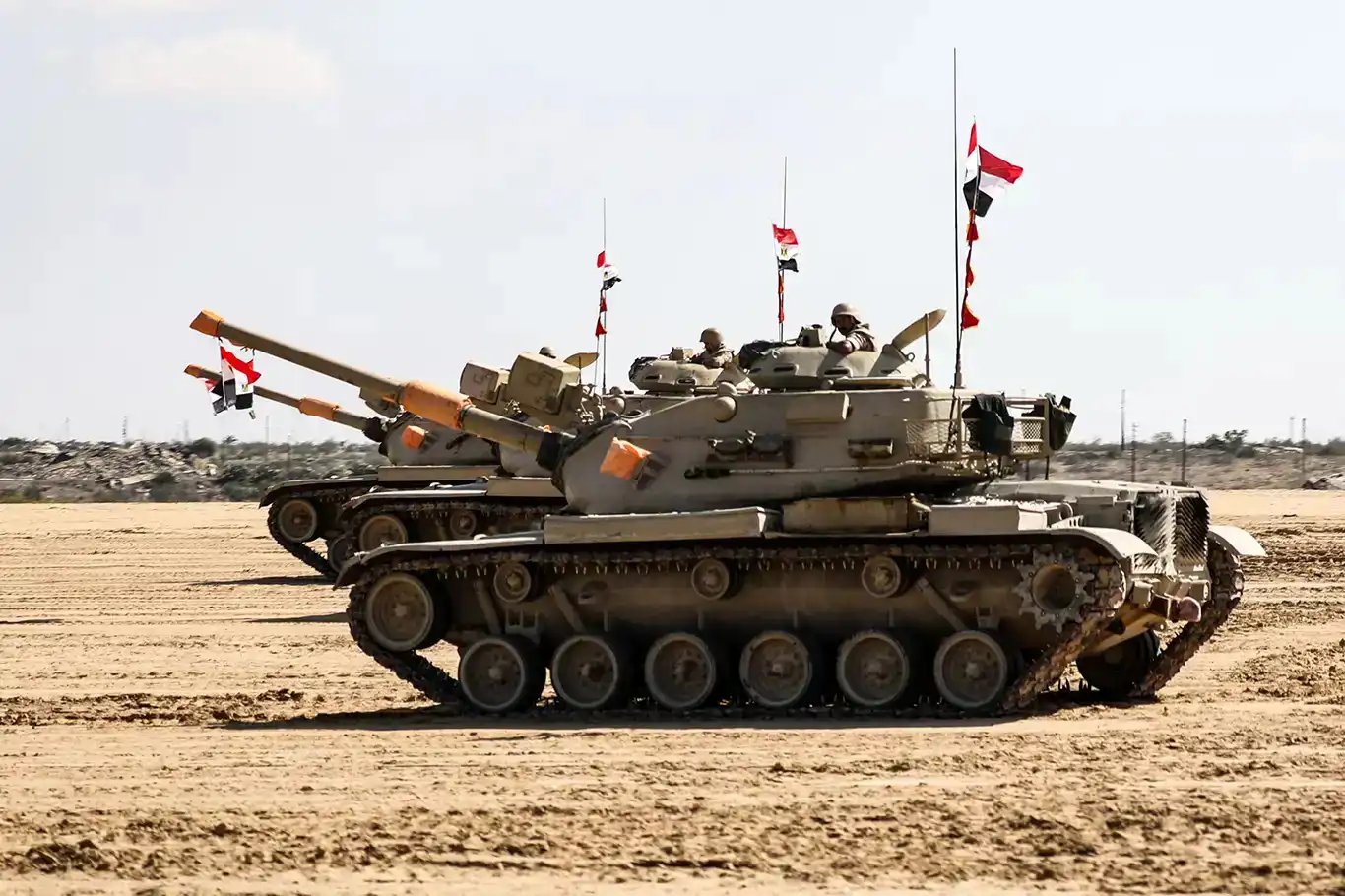Israel-Egypt tensions escalate over Sinai military build-up amid Gaza genocide


Israeli Prime Minister Benjamin Netanyahu has intensified diplomatic pressure on Egypt, urging the Trump administration to compel Cairo to scale back its military presence in the Sinai Peninsula.
The move, which cites alleged violations of the 1979 Camp David Accords, comes against the backdrop of Israel’s ongoing genocidal campaign in Gaza and its broader aggressive policies across the Middle East, raising concerns about regional stability.
During a meeting in Jerusalem, Netanyahu presented U.S. Secretary of State Marco Rubio with a list of Egyptian military activities in Sinai that Israel claims breach the peace treaty, which the U.S. guarantees. Signed by Egyptian President Anwar Sadat and Israeli Prime Minister Menachem Begin, the Camp David Accords partitioned the Sinai Peninsula into zones with strict limits on troop deployments and weaponry to ensure mutual security. Israeli officials accuse Egypt of expanding airbase runways to accommodate fighter jets and constructing underground facilities suspected of storing missiles, infrastructure they claim could be used for offensive purposes. While no concrete evidence of missile storage has been provided, Israel insists that Egypt has failed to offer a “satisfactory explanation” despite repeated diplomatic and military engagements.
Egypt maintains that its military posture in Sinai is a sovereign right aimed at addressing security threats, such as insurgent activity in the region. However, Israeli officials view these developments as a challenge to the delicate balance established by the 1979 treaty, accusing Cairo of undermining the agreement’s restrictions. The U.S., as a guarantor, now faces pressure to mediate, with the Trump administration reportedly reviewing Israel’s claims while navigating its strategic partnership with Egypt.
The timing of Netanyahu’s appeal is significant, as Israel’s actions in Gaza have drawn global condemnation. Since October 2023, Israel’s military campaign has killed over 65,000 Palestinians, predominantly women and children, and wounded more than 166,000, according to Palestinian sources. Entire neighborhoods have been reduced to rubble, Gaza’s healthcare system has collapsed, and humanitarian aid convoys face systematic obstruction by Israeli forces. The United Nations and human rights organizations, including Human Rights Watch, have accused Israel of war crimes, citing indiscriminate bombings and blockades that have triggered famine-like conditions.
Critics argue that Israel’s focus on Egypt’s Sinai activities is hypocritical, given its own unchecked militarization and violations of international law. Israel’s nuclear ambiguity, ongoing occupation of Palestinian territories, and airstrikes in Syria and Lebanon underscore a pattern of regional aggression. Palestinian analysts highlight the contradiction in Israel decrying Egypt’s defensive measures while perpetrating what they describe as a genocide in Gaza. Arab commentators warn that Israel’s pressure on Cairo risks alienating a key regional mediator, as Egypt has historically facilitated ceasefire talks between Israel and Palestinian resistance groups.
Israel’s broader policies, including settlement expansion in the West Bank and attacks on Iranian-backed forces in Syria, have further destabilized the Middle East. Recent Israeli airstrikes in Lebanon, killing over 1,200 civilians according to Lebanese authorities, have intensified regional tensions. Observers suggest that Netanyahu’s move to involve Washington reflects Israel’s reliance on U.S. support to dictate security arrangements, even as its actions undermine regional stability.
Egypt’s role as a mediator has been strained by Israel’s attacks on aid convoys and border crossings, fueling public anger in Egypt over the Gaza crisis. Analysts warn that Israel’s aggressive stance toward Cairo, combined with its ongoing war crimes in Palestine, risks escalating tensions at a fragile moment. As Israel seeks to curb Egypt’s sovereignty in Sinai while deepening its military dominance, the region faces the specter of further conflict, threatening the fragile peace established by the Camp David Accords and the stability of the Middle East. (ILKHA)
LEGAL WARNING: All rights of the published news, photos and videos are reserved by İlke Haber Ajansı Basın Yayın San. Trade A.Ş. Under no circumstances can all or part of the news, photos and videos be used without a written contract or subscription.
The Palestinian Ministry of Health reported on Friday that Israeli occupation forces killed 47 Palestinians and injured 142 others across the Gaza Strip in just 24 hours, marking yet another escalation in the ongoing genocidal assault on the besieged territory.
A North Korean merchant vessel briefly crossed the Northern Limit Line (NLL), the de facto maritime boundary between the two Koreas, in the Yellow Sea on Friday, prompting a swift response from South Korean forces.
Israeli Prime Minister Benjamin Netanyahu was met with unprecedented humiliation at the 80th session of the United Nations General Assembly (UNGA) as a significant number of delegates staged a mass walkout the moment he began his speech.
Iran and Russia have signed a landmark $25 billion agreement for the construction of four advanced nuclear power plants in southern Iran, marking a major step forward in the two countries’ strategic cooperation in the energy sector.